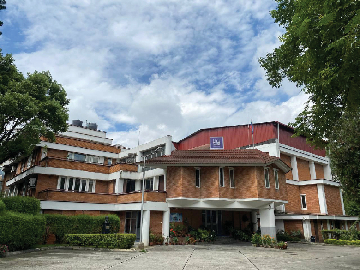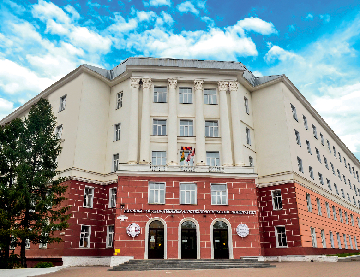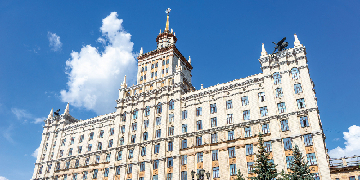While Maria Popova has been occupying the position of Head of the Russian House in Colombo, we can observe a steadily growing interest in the Russian language and the culture of Russia. It is mainly due to the development of tourist flow from Russia: according to the state tourism agency, the number of international tourists has doubled from 700,000 to 1,400,000 people over the past year. Also, there has been an increasing interest in higher education in Russia: there were 240 applications for 50 places (4.8 people per place) as part of the most recent quota campaign. In this issue, we familiarize our readers with the aspects of teaching and promoting the Russian language in Sri Lanka.
The Russian Language is Marching Confidently across Sri Lanka!
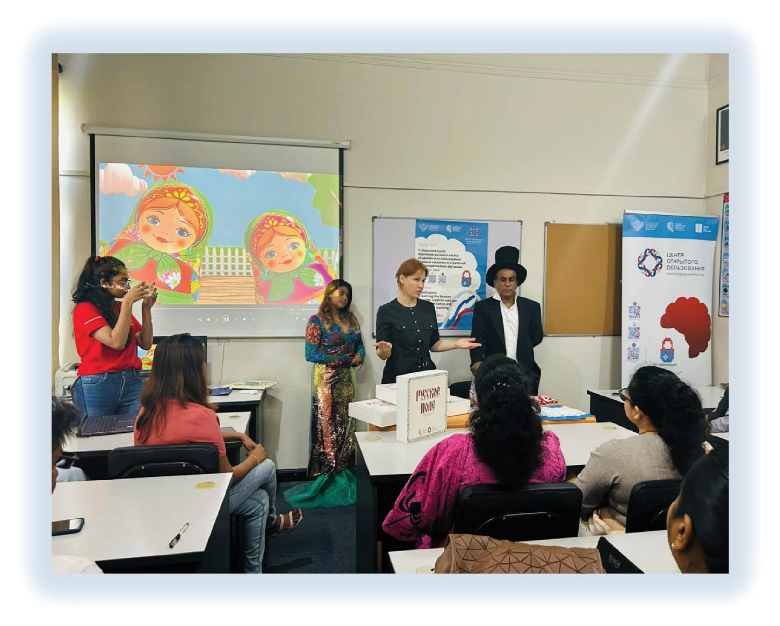

Russian Language for Everyone
The Russian House offers basic Russian language courses at A1 and A2 levels. They are taught by Russian language teachers who are qualified philologists from among compatriots and local residents. All of them are graduates of Russian universities. There is also a group for children. In March 2023, we opened another Russian language classroom. It was named after Anton Chekhov. The first classroom, which was repaired last year, is named after Alexander Pushkin.
We have launched two new projects, such as an intensive three-week course for those coming to Russia on a student/work visa and the Russian for Tourism course taught according to the original program created by Felix Fernando, a teacher.
The Russian Language Department of University of Kelaniya is the only state center for Russian studies that has sixty students now. Russian is optionally taught at 18 schools.
At the moment, the Russian House also offers online Russian language courses for individuals. For example, two students from Australia study the language with our teachers. Also, a hybrid format is used for remote regions of the island.
In 2023, the Russian House held the first Russian Language Teachers Forum. That’s how the Russian Language Teachers League of Sri Lanka was born. Membership in the league is gaining prestige, and new schools and universities join it. Official symbols of the league have also been created.
The Russian House holds offline forums and conducts training workshops on a regular basis, provides study guides, and develops ties with Russian universities (more than 30 partners).
The Russian language centers have been established at University of Gampaha, University of Helena Balika in Kelaniya, University of Sri Jayawardenepura, and University of Vavuniya.
Among important projects are Russian language courses at the National Police Academy in Sri Lanka and in the city of Ratnapura. In both cases, Russian is taught using the study guide “Road to Russia.”
Our short-term goal is to establish departments of Russian studies at Bandaranaike International Diplomatic Training Institute, University of Colombo, University of Peradeniya, and University of Jaffna.
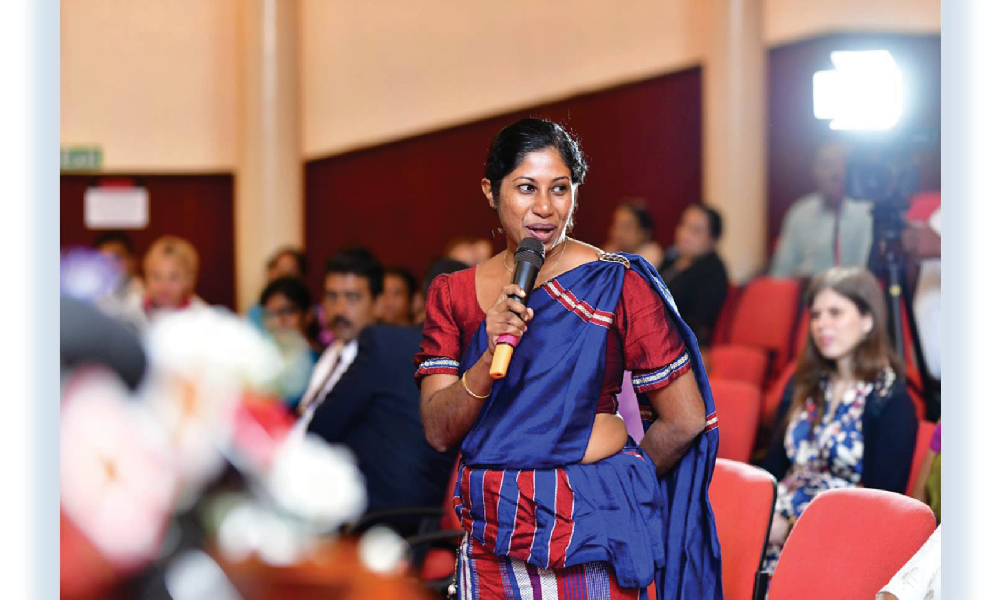
Unique Programs and Study Guides
In Sri Lanka, one of the most famous and widely used study guides for learners of Russian as a foreign language is “Road to Russia.” It was written by a team of authors such as V.E. Antonova, M.M. Nakhabina, M.V. Safonova, and A.A. Tolstykh and is published by Zlatoust Publishing House.
The study guide is intended for international students studying Russian at beginner and intermediate levels and covers A1–B1 levels according to the Common European Framework of Reference for Languages (CEFR). The Russian House aspires to standardize the teaching system taking into account the mentality of Sri Lankan people. It has developed a new study guide for Sri Lankan schools jointly with Chuvash State Pedagogical University. Also, a standardized A1–A2 level program has been created by the Masters Ilona Valieva and Alexandra Shamrai, which is now used to teach all the students taking Russian language courses at the representative office.
The Russian House provides educational and methodological literature and fiction for all the educational institutions in the Russian Language Teachers League. Russian literature corners have been opened at the National Library of Sri Lanka in Colombo and the Children’s Memorial Library in Kandy.
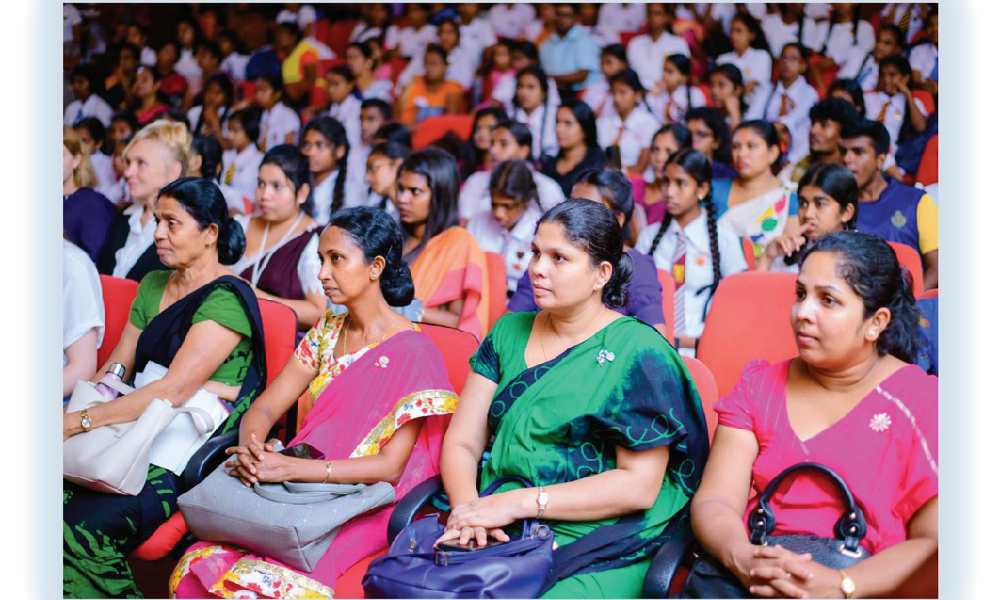
Russian Language Popularization Activities
First of all, annual events dedicated to the Russian Language Day are worth noting. They are usually held in June and always enjoy great popularity both among Russian language learners and graduates of Russian universities. The celebration includes a wide range of creative activities such as writing contests, stage performances based on works by Alexander Pushkin, recitation of poems, thematic exhibitions, and costume plays. Participants stage the tales, conduct quizzes about the poet’s life and work, create original illustrations for his works — all of this turns the event into a vibrant cultural festival full of inspiration and creativity.
The vibrant event — the Russian Language Festival — took place in November 2024. It brought together 24 teachers and more than 280 school students from different regions. The event included such activities as RFL workshops for teachers, quizzes for school students, and a gala concert with Russian poetry recitation, dancing and singing.
The annual Literary Festival promotes creative contact between Russian and Sri Lankan writers. The Sri Lankan public has already gotten acquainted with the works by Еvgeny Vodolazkin, Alexander Tsypkin, Ilya Reznik, Denis Dragunsky.
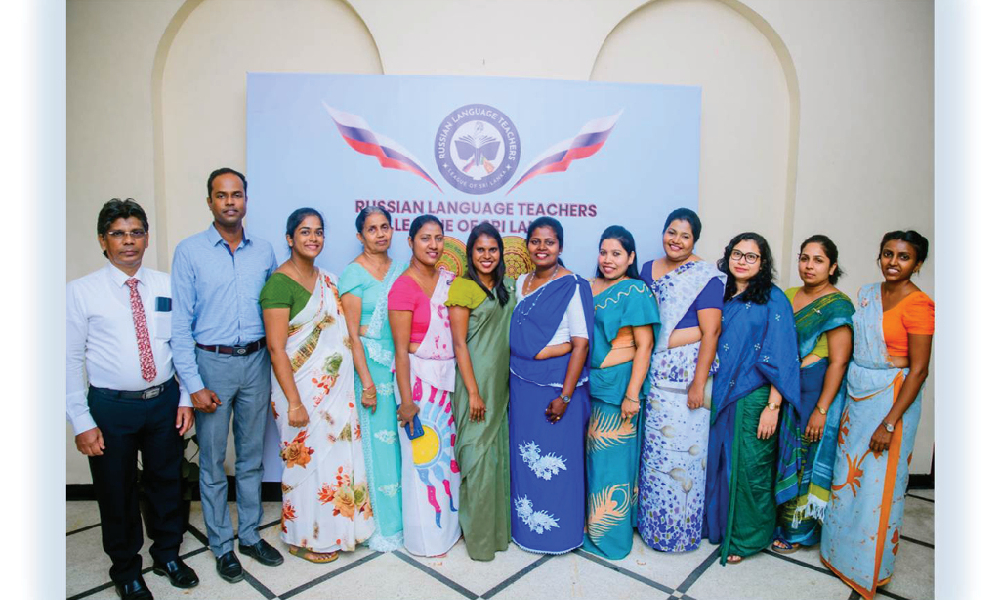
Support for School and University Teachers
To provide advanced training for university and school teachers of the Russian language, we conduct training workshops on a regular basis. In August 2024, ten best Russian language teachers were sent to take courses at Chuvash State Pedagogical University named after I.Y. Yakovlev with support from the Ministry of Education of the Russian Federation. An offsite advanced training course from Irkutsk National Research Technical University is also being discussed.
The projects implemented by the Russian House in Colombo not only promote the Russian language but also strengthen humanitarian ties between Russia and Sri Lanka, expanding the cultural space of the Russian language on the island.

